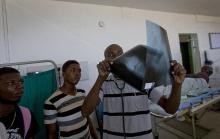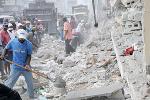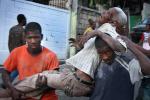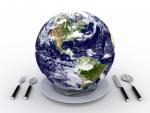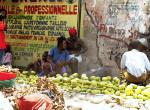World Bank: Haiti Should Focus on Primary Health Care Not Hospitals
A World Bank study recommends that Haiti and its donors focus less on building hospitals and more on preventative and primary care. Haiti spends less than 5 percent of its budget on health care meaning that it must prioritize. The best run hospitals have long been managed by or co-managed with non-governmental organizations. Public hospitals are in need of serious reform. Ninety pecent of operating budgets for hospitals are for payroll with an over-emphasis on administration. Decentralization could potentially empower health facilities by allowing staff to make their own budgetary and human resource decisions. The full article by Miami Herald journalist Jacqueline Charles follows.
